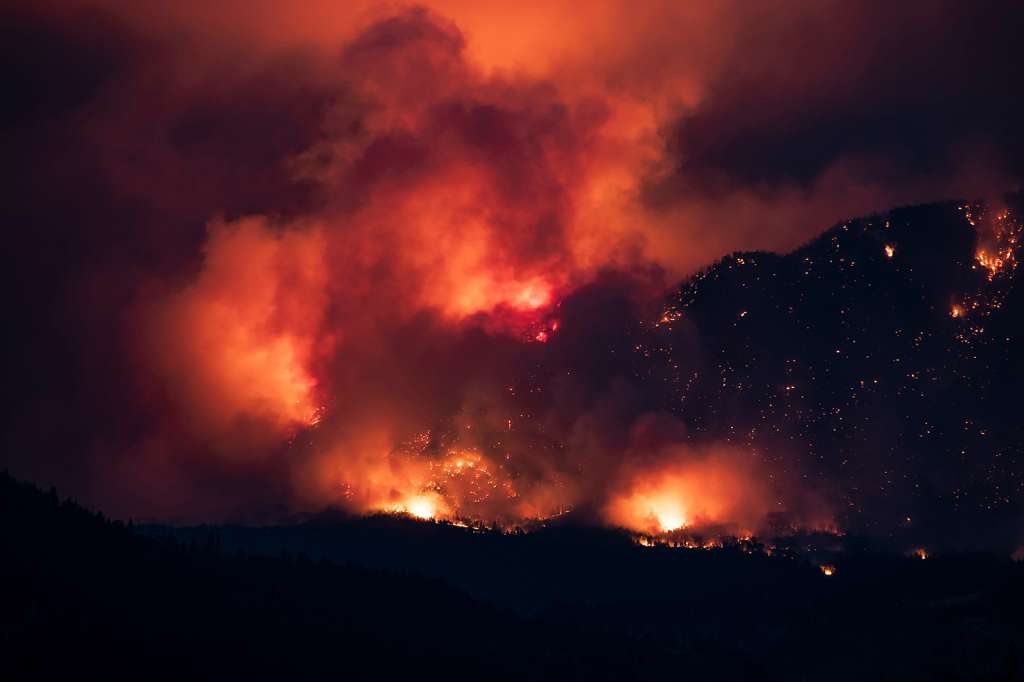(CNN) — Hundreds dead in a historic heat wave. A Canadian village burned to the ground. Water shortages. Animals competing for food.
The culprit? Humans, according to climate change scientists.
The heat wave that swept across much of the United States and parts of Canada in the Pacific Northwest “would have been virtually impossible without the influence of human-caused climate change,” according to a study by World Weather Attribution released Wednesday,
An international team of 27 climate scientists conducted a rapid attribution analysis, which found that temperatures will continue to soar in the future if overall greenhouse gas emissions aren’t significantly reduced.
“Climate change, caused by greenhouse gas emissions, made the heatwave at least 150 times more likely to happen,” the study found according to a news release from WWA. “Every heatwave occurring today is made more likely and more intense by climate change.”
Scientists have warned for decades that climate change will make heat waves more frequent and more intense. That is a reality now playing out.
The unprecedented high temperatures have expanded and exacerbated drought conditions in the Pacific Northwest, according to the latest US Drought Monitor map.
Temperatures ranging from 20-30 degrees above average in late June increased evaporation, “further drying out soils and vegetation,” the Drought Monitor wrote.
As of June 29, drought conditions existed across 93% of the West, an all-time high — with nearly 60% in extreme or exceptional drought, the two most severe conditions.
California on June 30 recorded a statewide average of just 23.61 inches of precipitation, marking its driest year since records began in 1895.
Jan Null, a former National Weather Service meteorologist in the San Francisco Bay Area, first reported the rainfall year record on Wednesday, citing data from the Western Region Climate Center.
Benjamin Hatchett, a climatologist at the center, noted that the 2020-2021 period was not only the state’s driest rainfall year, but also the second warmest year on record, making for a “dire situation.”
“We get a large fraction of our water from the runoff that the snowmelt provides,” Hatchett told CNN.
He added that the extraordinary conditions have also primed much of the state for wildfires.
“Basically, every part of California is ready to burn at this point,” he said. “All it takes is one mistake.”
In Washington state, a total of 57 heat-related deaths were reported from June 26 through July 1, Washington State Department of Health Public Information Officer Teresa McCallion told CNN.
And in British Columbia, 486 sudden deaths — almost triple the usual number — occurred during the heat, the coroner’s office said, which set a new record for Canada’s all-time highest temperature.
The village of Lytton was “devastated” by a fast-moving wildfire that engulfed it “within minutes,” British Columbia officials said.
The WWA study warns that extreme weather events such as the heat wave will become “less rare” as the planet warms.
“Our rapidly warming climate is bringing us into uncharted territory that has significant consequences for health, well-being, and livelihoods,” the scientists write in their study. “Adaptation measures need to be much more ambitious and take account of the rising risk of heatwaves around the world, including surprises such as this unexpected extreme.
The heat wave is a “mass casualty event,” officials say
In Oregon, the number of people who died from heat-related illnesses during the late-June historic heat rose to 107, the state medical examiner said Tuesday in a statement.
Officials described the heat wave as a “mass casualty event” consistent with “worst-case climate models.”
“The unprecedented heat dome that settled over the region for nearly five days between June 25 and June 30 was a mass casualty event,” according to Multnomah County, home to the city of Portland.
On one single day, June 28, the county’s medical examiner experienced four times the typical number of deaths, the county said.
As of Tuesday, the Multnomah County medical examiner had identified at least 67 deaths suspected to have been caused by hyperthermia, 40 of which were formally determined to have been due to the heat. But officials said a final accounting of the death toll from the heat wave would likely take months.
“The number of people and infrastructure harmed by this event is consistent with worst-case climate models for the Pacific Northwest and predict there is worse to come in the absence of aggressive global action to stop the use of fossil fuels,” John Wasiutynski, Multnomah County’s sustainability director, said in a statement.
(Copyright (c) 2024 CNN. All Rights Reserved. This material may not be published, broadcast, rewritten, or redistributed.)

